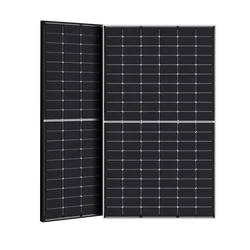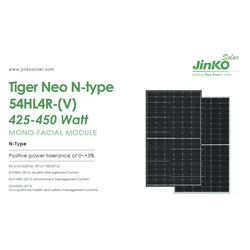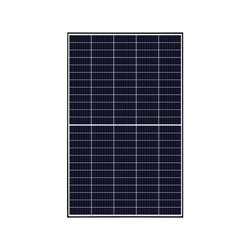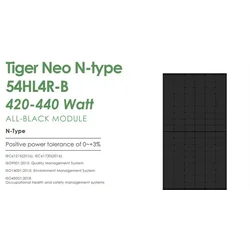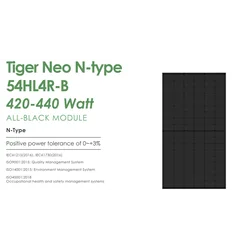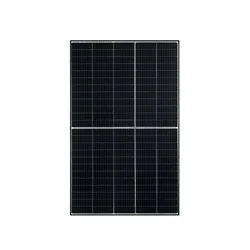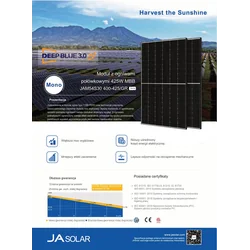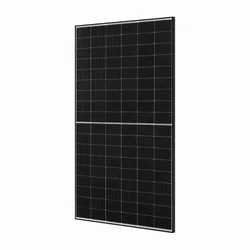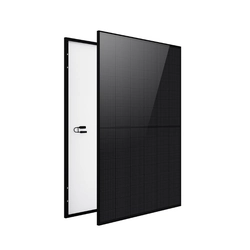Head Päikesepaneelid - Kuidas Neid Tuvastada?
Good Photovoltaic Panels - How to Identify Them?
When looking for the right photovoltaic panels for your installation, it's essential to know how to distinguish high-quality modules from those that should be avoided. Almost all brands advertise their products as "premium," but that's not always the case. Let's explore the key characteristics to consider when choosing photovoltaic panels, ensuring that you make an informed decision.
Characteristics of Premium Modules
20-30 years product warranty: High-quality photovoltaic panels usually come with extended warranty periods, ranging from 20 to even 30 years. A long warranty indicates the manufacturer's confidence in the durability and reliability of their product.
Favorable warranty terms: Pay attention to the warranty conditions offered by the manufacturer. Premium panels often provide coverage for the period during which the modules maintain high performance, and they offer support in case of any potential issues.
Representation in Europe: Having a manufacturer's representative in Europe ensures smooth communication and efficient handling of formalities. It reflects the company's commitment and professionalism in serving the local market effectively.
Over 10 years of production experience: Manufacturers with extensive experience in producing photovoltaic panels are more likely to design high-quality and durable products.
Higher price: Premium photovoltaic panels usually come at a higher cost than lower-quality ones. The higher price reflects the use of better materials, advanced production technology, and the assurance of a longer product lifespan.
Fill Factor (FF) above 0.8: The Fill Factor represents the efficiency of the photovoltaic module. A value above 0.8 indicates a high level of performance and efficiency in the panels.
Temperature coefficient above 94%: Premium modules exhibit high resistance to temperature fluctuations, resulting in better performance in various weather conditions.
Tested under tougher conditions than required by certifications (e.g., PVEL): Manufacturers subjecting their photovoltaic panels to additional testing under demanding conditions demonstrate confidence in their product and a commitment to delivering top-notch solutions.
Characteristics of Low-Quality Modules
Less than 10 years product warranty: Photovoltaic panels with short warranty periods may indicate lower quality and less confidence from the manufacturer.
No representation in Europe and unstable distribution: Manufacturers without a presence in Europe may hinder communication and resolution of potential panel-related issues.
Recently started their production: New manufacturers may not have a fully established production process, and the quality of their panels may be less certain.
Suspiciously low price: Low-priced photovoltaic panels may raise concerns about their quality. Cheap panels often utilize inferior materials or technology, resulting in lower efficiency and a shorter lifespan.
Fill Factor (FF) below 0.72: A low Fill Factor indicates lower energy conversion efficiency from solar to electrical energy.
Temperature coefficient below 90%: Modules with lower temperature resistance may be more susceptible to degradation and loss of efficiency in challenging weather conditions.
Modules purchased outside official distribution channels: Buying photovoltaic panels outside official distribution channels carries the risk of purchasing counterfeits or used modules with potential damage or reduced efficiency.
Choosing unreliable installers: Even good photovoltaic panels can underperform if poorly installed. Choose a trustworthy and experienced installer to ensure a professional installation.
Parimad pakkumised

Fotogalvaaniline moodul PV paneel 410Wp Risen RSM40-8-410M Mono poollõigatud must raam

Jinko fotogalvaaniline moodul 435W JKM435N-54HL4R-B 435W Täismust

Jinko Solar fotogalvaaniline moodul 435W 435 JKM435N-54HL4R-B FB täismust

JA Solar JAM54D40 450/LB Mono bifacial suure jõudlusega must raam (konteiner)

Fotogalvaaniline moodul PV paneel 400Wp Longi LR5-54HIB-400M Täismust
Conclusion:
Selecting the right photovoltaic panels is crucial for obtaining an efficient and reliable solar system. Premium modules, with features such as extended warranty, high Fill Factor, temperature resistance, and testing in challenging conditions, serve as essential indicators of quality. On the other hand, low-quality modules, with shorter warranties and inferior technical specifications, should be avoided to ensure a successful and sustainable photovoltaic installation.
Additionally, remember that even the best-quality equipment cannot overcome poor installation practices. It's vital to find a reputable solar company you can trust for a seamless and successful solar energy project.
